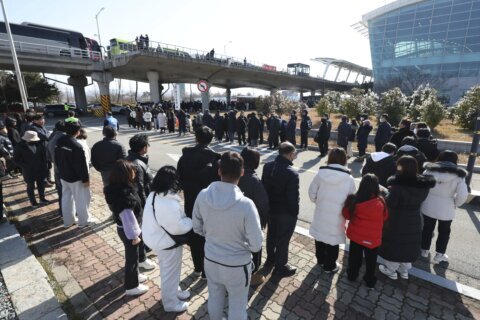I appear monthly on the Charlotte version of the “Today Show,” and they recently asked me to cover the topic of senior compliance with vaccinations. It surprised me because I assumed that compliance was good. I wasn’t quite right.
Since this is a fluid situation, the statistics keep changing. The U.S. Census Bureau, in conjunction with the Centers for Disease Control and Prevention and the National Center for Health Statistics, compiles data every two weeks on the state of vaccinations. Here is where we stood as of late March: Just over 40% of Americans 65 and older are fully vaccinated, and close to 70% have had at least one shot.
Senior Helpers, an in-home provider, released findings that showed that more than half of seniors reported they still hadn’t received the vaccine.
[READ: Myths About COVID-19 Vaccines.]
In terms of data, the real worry to me is health care workers and essential workers, particularly long-term care. Research indicates that 33% of essential workers and 29% of those who work in a health care delivery setting won’t get the vaccine.
According to a Washington Post-Kaiser Family Foundation poll, barely half of front-line health-care workers (52%) said they had received at least their first vaccine dose at the time they were surveyed. More than 1 in 3 said they were not confident vaccines were sufficiently tested for safety and effectiveness.
OnShift, a human capital management software company, reported that employees within senior living and care facilities found a 94% increase in willingness to take the vaccine this month, as well as a 41% decrease in plans to decline, compared with an initial survey in December. Sixty two percent of respondents were willing to take the vaccine in the March survey, up from 32% in December. All in all, still a third are reluctant.
We cannot completely open up our assisted living and nursing homes if those who work in them don’t get vaccinated. And of course, those who visit — such as family caregivers and vendors — have to be accounted for as well.
Well-Established Anti-Vaccination Reasons
There will always be people who are against vaccinations, but the percentages are few. And yes, you should consult with your physician to make sure you aren’t allergic to any of the ingredients. There will always be people with adverse reactions. We’ve seen it with annual flu shots.
People say the vaccines have developed too fast. Yes and no. Scientists had been working on these ideas pre-SARS, and the ability to collaborate today is exponentially better. There are racial discrepancies, political party discrepancies and even geographical discrepancies. And there are the conspiracy theorists.
[READ: COVID-19, Vaccines and Body Weight.]
Moving the Needle
How can we get those who are hesitant about vaccines to reconsider? Well, let’s first look to our seniors as examples and follow their lead. They still outpace the rest of the population in compliance — and to be clear, they were prioritized first, so the numbers reflect that.
Anecdotally, since I’m in this target demographic, we’ve seen friends adamant about not getting vaccinated totally change their perspective when they thought about their overall health and the peace of mind and freedom that comes with vaccination.
We need targeted strategies and messages. Someone who is opposed because of political views needs a different message than someone who is opposed because of racial inequality.
We can’t be dismissive. We have to acknowledge historical reasons for medical distrust among people of color, and work with leaders within their communities. For political skeptics, it may involve messages that are less about the risks of COVID and more about giving the economy a shot in the arm. There is a quote that reads: “Public health moves at the speed of trust.”
Even among people who say they will get vaccinated, just like people who say they will get out and vote, one-third or more don’t. So we have to make it easy for them. When people fail to get their annual flu shot, for example, there is an assumption of some deep-seated desire not to do it, some deep fear of undesirable side effects. But actually, a really common reason is that they forget. It’s a little bit of hassle, and they don’t get around to it.
Buddy up with neighbors. We first alerted all of our older friends when the 75-plus vaccinations were announced and offered to drive them if needed. Inertia is hard to overcome. And remember there is no cost to this.
While long-term care works are lagging behind, hospital health systems seem to be faring better. Here in North Carolina, our circle of friends has been impressed with the efficiency and logistical magic that the hospitals have displayed in mass vaccination drives.
They are following some effective strategies. They’re scheduling people rigorously, and by making the process seamless, they have increased compliance. When people know a dose is waiting, compliance increases 36%. Old-school techniques work. Phone registration has been more effective than online. Relentless reminders have been effective as well. Texts and emails as your date approaches work.
[READ: What’s Safe to Do After Getting the COVID-19 Vaccine?]
We especially need health care workers who have been vaccinated to tell their story to other health care workers who have not. That is especially true in long-term care. It will be tough to reach herd immunity until these cross-sections of the population are vaccinated.
More from U.S. News
Home Remedies Not to Try for COVID-19
What Weakens the Immune System?
Vaccine Hesitancy in Seniors originally appeared on usnews.com







